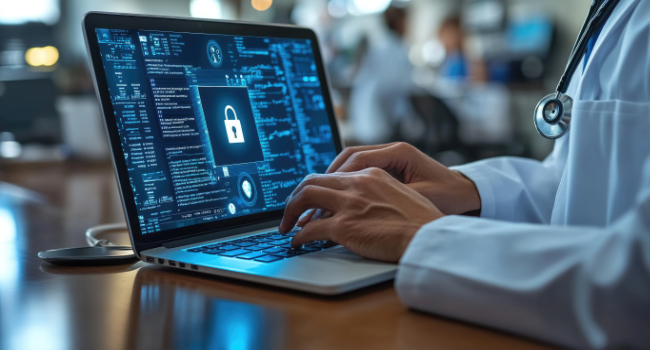
Report: Nearly 1 in 5 Healthcare Leaders Say Cyberattacks Have Impacted Patient Care
Omega Systems, a provider of managed IT and security services, today released new research that reveals the growing impact of cybersecurity challenges on leading healthcare organizations and patient safety. According to the 2025 Healthcare IT Landscape Report, 19% of healthcare leaders say a cyberattack has already disrupted patient care, and more than half (52%) believe a fatal cyber-related incident is inevitable within the next five years.
These concerns come as attacks become more widespread, frequent, and severe. In the past year, 80% of healthcare organizations were targeted by at least one cyberattack, with social engineering attacks (48%) and ransomware (34%) topping the list. Concerningly, more than 1 in 4 organizations reported that at least half of their sensitive patient data was at risk due to cyberattacks, and yet many teams admitted to relying on outdated infrastructure, manual processes, and limited in-house staffing to defend against modern threats.
“Healthcare is one of the most frequently targeted industries by cybercriminals – and not surprisingly given the sensitive data they manage. Unfortunately, growing gaps in cyber risk management are resulting in real-world consequences for patients and major setbacks for organizations,” said Mike Fuhrman, CEO of Omega Systems. “The data shows that although leaders don’t report cybersecurity as a top challenge, it’s directly impacting their highest priorities – from patient safety to regulatory compliance. This disconnect is a growing risk across the healthcare industry that needs to be addressed with better visibility, readiness, and resources.”
While leaders report many significant challenges hindering their business success, cybersecurity ranks last (33%) – trailing behind other priorities such as rising operational costs (53%), maintaining compliance (52%), and protecting patient data (40%). Other key findings include:
- Confidence in cyber readiness doesn’t match reality: 80% of healthcare leaders are confident in their teams’ ability to stop AI-powered cyberattacks. However, internal preparation tells a different story. Nearly a third of companies don’t regularly train their employees on how to respond to cyber threats, and only 53% run phishing simulations. Nearly 1 in 5 lack a current or effective incident response plan, and almost 25% acknowledge it could take up to a month to detect and contain a data breach – with some sectors like life sciences taking even longer.
- Outdated systems are weakening defenses: More than half (56%) of leaders say outdated infrastructure would delay breach recovery, and 36% admit their current cybersecurity tools cannot protect cloud-based patient data. Compounding the issue, most have yet to adopt advanced security tools like next-gen EDR with moving threat defense (only 46%) and data discovery technology (46%), and a more than a third (34%) don’t know what data is at risk across their network, making proactive defense nearly impossible.
- Internal teams are stretched thin: Nearly two-thirds of healthcare organizations surveyed maintain an in-house IT or cybersecurity team, but 23% say they are understaffed. In the event of a cyberattack, 1 in 5 companies believe recovery would be delayed because they lack experienced in-house staff or access to a 24×7 security operations team.
- Compliance is causing pressure: Though there is a general feeling of preparedness for upcoming HIPAA rule changes, 54% or companies surveyed still rely on manual in-house processes to handle compliance management. 60% say staying current with regulations is their top challenge, while 57% of organizations lack the time and resources to meet stringent requirements and oversee the compliance process.
Despite the increasingly sophisticated threat landscape, 55% of healthcare organizations are not currently partnered with a Managed Security Service Provider (MSSP) for added expertise and support. The data shows healthcare companies that co-manage IT and security with an MSSP are better equipped to handle rising threats and compliance demands, outperforming peers in areas like threat detection speed, vulnerability assessments, HIPAA control adoption, and managed compliance use.